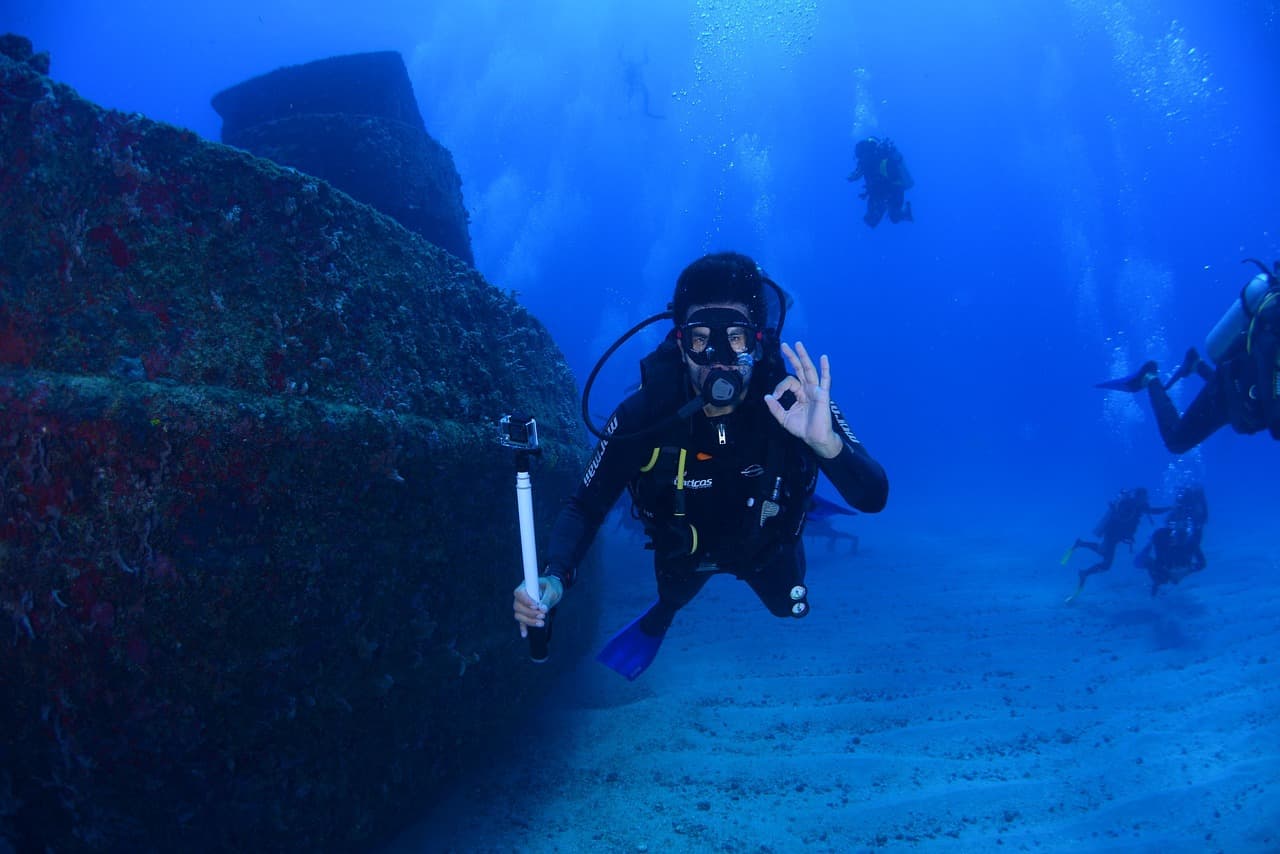Conquering Diving Anxiety: 5 Tips to Dive Confidently
Discover effective strategies to manage and overcome fear and anxiety in scuba diving. Learn about the importance of muscle memory, diaphragmatic breathing, and practical tips to enhance your confidence and enjoyment underwater.
Posted by
Related reading
Essential Scuba Diving Tips for Beginners: A Guide to Your First Dive
Discover essential scuba diving tips for beginners, including the importance of swimming skills, and follow our 7 tips to ensure a safe and enjoyable first diving experience. Learn how to never hold your breath, equalize your ears, clear your mask, find your regulator, operate your BCD, understand basic hand signals, check your air, and stay hydrated between dives.
10 Dive Shop Red Flags - DiveBusters Adds Security Measures For Safety
Choosing a safe and reliable dive shop is crucial for an enjoyable diving experience. Discover the top 10 red flags to watch out for and learn how DiveBusters helps you avoid them. From rating dive shops and ensuring cost transparency to validating professional certifications, DiveBusters integrates security measures to keep you safe. Dive confidently knowing DiveBusters has your back with detailed reviews and reliable information. Start diving safely soon with DiveBusters.

Understanding Fear and Anxiety in Scuba Diving
Diving anxiety can stem from various sources, including claustrophobia, fear of marine life, and equipment concerns. Recognizing these triggers is the first step toward managing them effectively.
1. Proper Training:
Comprehensive training with a trusted issuer helps reduce uncertainty and build confidence.
2. Controlled Breathing:
Diaphragmatic breathing lowers heart rate and promotes relaxation, crucial for managing anxiety underwater.
3. Gradual Exposure:
Begin with shallow dives and gradually increase depth to build comfort and confidence.
4. Visualization:
Mental rehearsal of successful dives conditions your mind for positive experiences.
5. Physical Fitness:
Maintaining good physical condition enhances diving performance and overall confidence.
Five Practical Tips
1) Practice Regularly:
Frequent diving practice helps develop muscle memory, making responses automatic and reducing panic. By repeating skills, you build a reliable, automatic response system that can significantly reduce anxiety during dives.
2) Breathing Exercises:
Engage in diaphragmatic breathing exercises both on land and underwater to improve air efficiency and reduce stress. Practicing this technique helps in maintaining calmness and extending your dive time.
3) Buddy System:
Always dive with a trusted buddy for added safety and reassurance. Knowing that you have reliable support can alleviate anxiety and create a safer diving environment.
4) Mindfulness Techniques:
Incorporate mindfulness and relaxation techniques to stay calm and focused during dives. Techniques such as meditation and visualization can help in managing anxiety and enhancing your overall diving experience.
5) Equipment Familiarity:
Regularly check and become thoroughly familiar with your diving equipment to prevent anxiety related to gear issues. Being comfortable and confident with your equipment ensures you can handle any unexpected situations calmly.